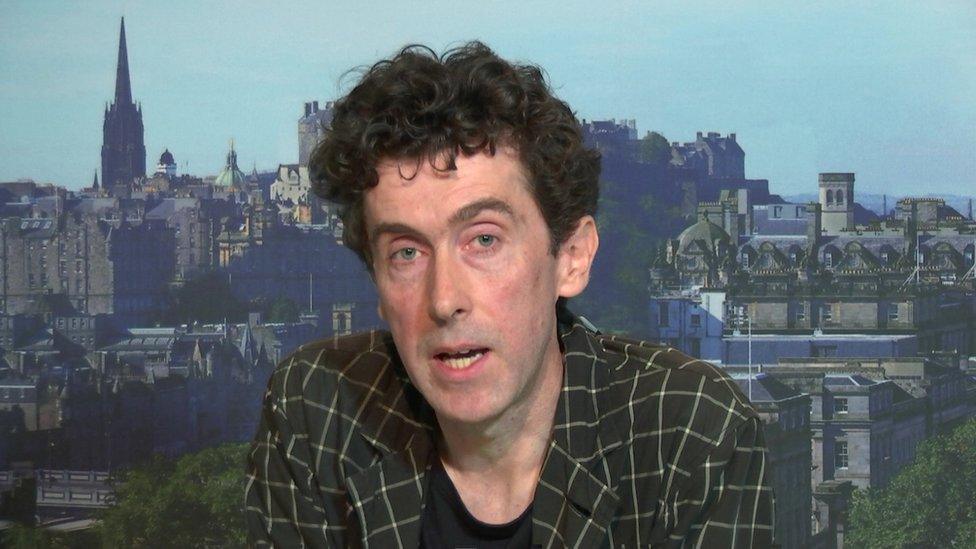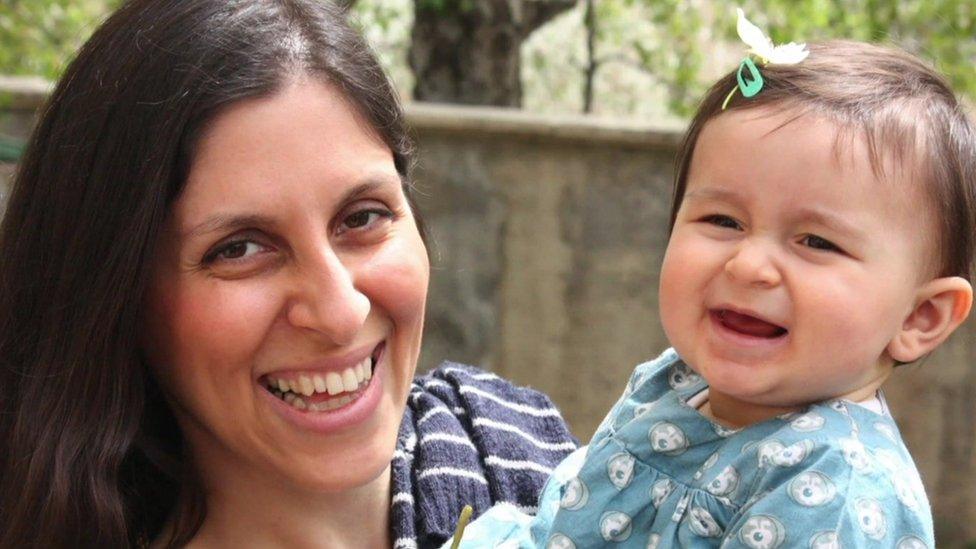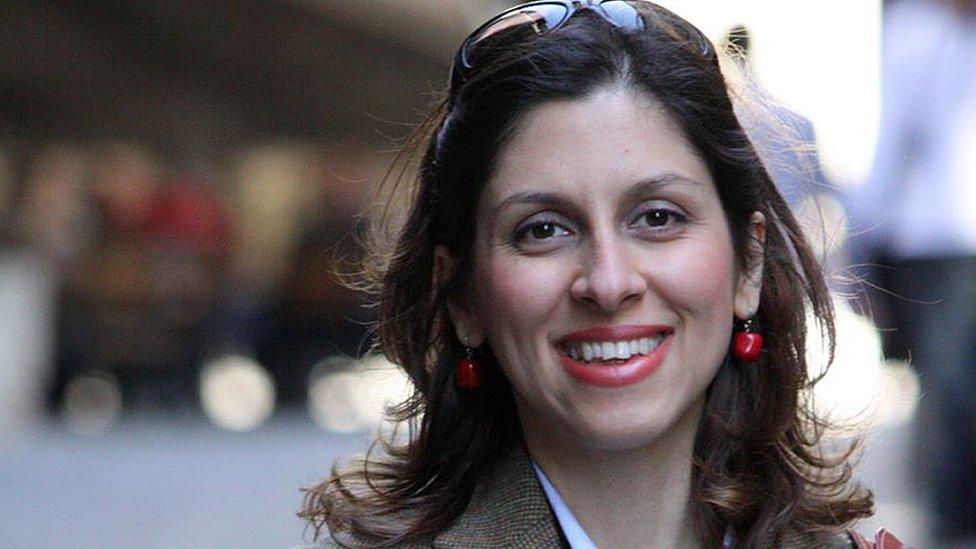Aras Amiri: British Council worker jailed in Iran a 'bargaining chip'
- Published
'Iran are using my fiancee as a bargaining chip'
A British Council worker jailed for 10 years in Iran for spying is being used as a "bargaining chip" by Iran's government, her fiance has said.
Aras Amiri, 33, an Iranian citizen who lives in London, was held in March 2018 on a visit to her unwell grandmother.
She lost an appeal against her prison sentence earlier this week.
In his first broadcast interview, her husband-to-be James Tyson told the BBC the UK needed to "get on the phone" to Iran and "say this can't happen".
He added Ms Amiri is being held in the same prison as Nazanin Zaghari-Ratcliffe, the British-Iranian mother who was also jailed for spying, and the two women are "close" and "very supportive of each other".
Ms Amiri has worked for the British Council for five years, a government-founded body which promotes culture and education. She had been helping to build a greater appreciation of Iranian culture in the UK.
Mr Tyson said his fiancee, a UK resident who had been making trips to Iran once or twice a year to visit family, was stopped on the way to the airport as she was leaving the country.
"She was led into a series of interrogations, imprisoned, solitary confinement and then a period of interrogations over two months," he said.
Ms Amiri was charged and jailed with "acting against national security", with Iran's judiciary claiming Ms Amiri had confessed to co-operating with British intelligence.
The British Council, says it "firmly refutes the accusation levied against her".
Iran 'putting pressure on UK'
Speaking on the BBC's Victoria Derbyshire programme, Mr Tyson said Ms Amiri and her family had initially tried to overturn the conviction through "official channels" - but now believe it is "actually a problem between the UK and Iran".
"It's one of those cases where you know that what's happening is being done for public effect," he said.
"As much as one can try to work within the official channels, one knows that actually we're dealing with a situation about the impression that Iran wants to make to the UK, the pressure they want to put on the UK.
"And using Aras in this way as a bargaining chip or hostage of some kind to try get what they want, some advantage in their relationships with the UK."

James Tyson gave his first broadcast interview to the BBC after his fiance's appeal was rejected
Mr Tyson said when Ms Amiri was arrested, Iranian authorities told her she was there "because she worked for the British Council".
Because of this, he added, he believes the British government is "at some level responsible for her wellbeing and her duty of care and her work", since the council is partly funded by the UK government.
He urged the UK government to talk to the Iranian government, adding: "It involves listening on both sides".

Aras Amiri was put in solitary confinement at some points during her detainment
A spokesperson for the Foreign Office said: "We are concerned that British Council employee Aras Amiri has had her appeal against a 10 year sentence in Iran rejected.
"Sentencing a woman to 10 years in prison for seeking to build cultural ties and aid understanding between the peoples of the UK and Iran is unjustifiable."
Aras and Nazanin 'housemates'
Detailing Iran's treatment of Ms Amiri during the time she has been detained, Mr Tyson said her lawyer had to be "approved" by the Iranian authorities, and during the appeal process she had no contact with a lawyer.
He also claimed that while interrogating her, Iran had asked her to work with the Iranian government "in some way as an informant in the UK" in exchange for her release, but she refused.
Talking about his fiancee's friendship with Mrs Zaghari-Ratcliffe, who was jailed for five years in 2016 for spying, which she denies, Mr Tyson said: "They're very supportive of each other. They're going through what's a very intense experience and in many ways they have to keep a very positive outlook.
"Sharing books they have, cooking together, that's how they pass their days."
Why one mother's personal plight is part of a complicated history between Iran and the UK (video published August 2019 and last updated in October 2019)
On Tuesday, it was reported that Mrs Zaghari-Ratcliffe had been given less access to her family.
Their cases are among those that prompted former Foreign Secretary Jeremy Hunt to warn British-Iranian dual nationals not to visit the country for fear of arrest and imprisonment.
BBC's security correspondent Frank Gardner says analysts believe the imprisonments are part of a response by Iran's hardline judiciary and security establishment to hit back at the West for the country's increasing isolation under international sanctions.
Diplomatic tensions between the UK and Iran have been increasingly strained in recent months.
- Published14 May 2019

- Published20 August 2019

- Published23 May 2022
